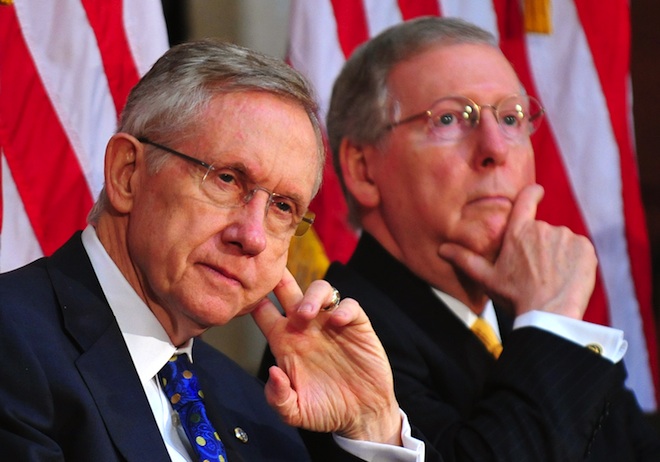Senate Democrats’ effort to avert a student loan interest rate hike fell prey Tuesday to a Republican wall of opposition. GOP members declared their support for the cause but grumbled about how the majority party wants to pay for it.
A motion to proceed went down along party lines, 52-45, falling short of the 60 votes needed to break a GOP filibuster. The underpinnings of the debate are an election-year battle for young voters, whom President Obama is eager to energize and whom presumptive Republican presidential nominee Mitt Romney is also courting.
“For Republicans, well, we don’t think young people should have to suffer any more than they already are as a result of this president’s failure to turn the economy around,” said Minority Leader Mitch McConnell (R-KY) on the Senate floor. “We just disagree that we should pay for a fix by diverting $6 billion from Medicare and raising taxes on the very businesses we’re counting on to hire these young people.”
The Dem legislation would freeze Stafford loan interest rates for some 7 million students at 3.4 percent — averting a rise to 6.8 percent in July if no action is taken — by closing a tax loophole on high-income owners of some private corporations. The revenues would be raised via Medicare and Social Security payroll taxes, potentially blocking a stream of future funding keeping existing funding intact.
Senate Republicans, like their House colleagues, want to fund the $6 billion cost by repealing the health care reform law’s Prevention and Public Health Fund, a method Democrats reject because the fund was already cut from $15 billion to $10 billion in the payroll tax cut bill.
Senate Majority Leader Harry Reid (D-NV) office said the Democrats’ “main goal is to move this bill forward” and that he would welcomed a vote on the Republican alternative. “Unfortunately, it appears that Republicans appear more interested in obstruction than progress,” he said on the floor.
It’s unclear what’s next for the bill in the Senate. The House has passed the GOP’s preferred version, and the two chambers will likely have to reconcile different versions in conference committee either way.
The election-year ramifications weren’t lost on McConnell, who accused Democrats of trying to “find a way to drive a wedge between Republicans and a constituency that they’re looking to court ahead of the November elections.”






